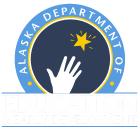- Cama-i, quyana tailuci!
- (Central Yup’ik)
- "Greetings, thank you for coming!"
Virtual Learning Consortium
Student Resource:
Virtual Content and Mini-Courses
The Virtual Learning Consortium (VLC) is a component of the Alaska Reads Act (AS 14.30.800). The purpose of the VLC is to make virtual education and professional development resources available to students and teachers in the state.
VLC Student Resources: Virtual Content Information and Application
Student Resources: Preparing for Life After High School
The content is available in two distinct formats, tailored for different instructional approaches:
- Asynchronous Mini Course for Students
- Designed for students to complete independently at their own pace.
- Includes self-contained learning materials and activities.
- Course Content for Teacher Delivery
- Includes detailed teacher instructions provided before each learning activity.
- Teachers are strongly encouraged to review the entire content prior to instruction to ensure effective preparation and understanding.
- The instructions provide descriptions, explanations, and guidance to support the teacher in delivering the material and facilitating student learning.
- Important Note: This version is not recommended for direct student use. For in-person instruction, teachers should use Module 2, which is designed for display via a projector or screen.
This dual-format approach ensures flexibility in delivering instruction while maintaining clarity and effectiveness.
List of Resources:
AK101: Understand Hard and Soft Skills
AK102: Research Job Opportunities
AK109: Prepare for Life After High School
AK110: Practice New Hire Paperwork
AK111: Read Your Paycheck
AK113: Understand How to Budget
AK118: Explore and Select Post-Secondary Schools
AK119: Complete the FAFSA
AK123: Having Crucial Conversations in the Workplace
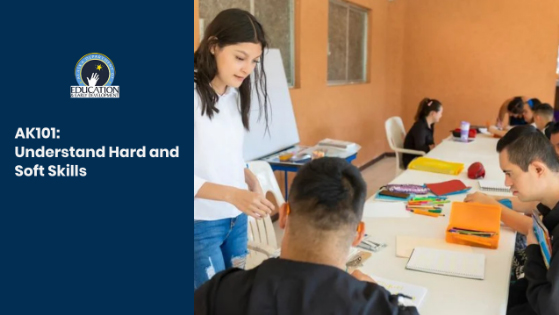
AK101: Understand Hard and Soft Skills
Learning Outcomes:
- Learn key terms related to hard and soft skills.
- Understand the differences between hard and soft skills.
- Reflect on areas of need when developing these two types of critical skillsets.
- Practice identifying hard and soft skills by going through job descriptions.
- Create a plan to learn new soft and hard skills that will make you a great future employee.
Description:
Knowing the difference between hard and soft skills is an important part of any career search. Awareness of the different types of skills can help you determine your strengths and areas you need to improve your skills.
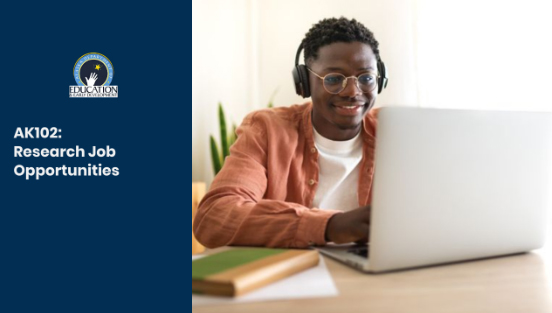
AK102: Research Job Opportunities
Learning Outcomes:
- Learn key terms related to researching jobs and careers.
- Develop an awareness of the different ways you can research a company and the positions they have available.
- Become comfortable merging your research into your job application.
- Extensively research a company of your choice to practice your research skills.
- Understand how keywords in job applications can help you develop your job application and resume.
Description:
Researching job opportunities and companies can help you find the position that best suits while also putting you ahead of the game when applying for a job. This research can assist you in finding the best fit for your skills and needs, and your long-term goals.

AK109: Prepare for Life After High School
Learning Outcomes:
- Learn key terms related to leaving school prepared.
- Articulate your “selling points” as a future employee.
- Brainstorm two people in your life who would serve as good and appropriate professional references for you.
- Crosscheck your documents to ensure your employment portfolio is as updated as possible.
Description:
In this play, you will “put it all together”. You will make sure that all your work, resources, and information are organized so once you leave high school, you are able to succeed by having access to what you need. You will also make sure you’ve considered who in your network will serve as a support to you once you start the next phase of your life.
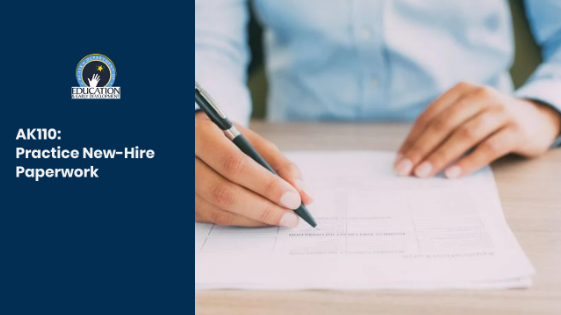
AK110: Practice New Hire Paperwork
Learning Outcomes:
- Learn key terms related to new hire paperwork.
- Understand the purpose of the I-9 and W-4 forms and employment contracts.
- Practice completing a W-4 form.
- Practice completing an I-9 form.
- Practice outlined strategies to better understand employment contracts.
- Keep track of the personal information you will need to know/have on hand to fill out these forms accurately and quickly.
Description:
After accepting a new job, there will be paperwork you will need to fill out for your tax deductions and to prove your eligibility to work in the United States. Paperwork usually will include completing an I-9 form, a W-4 tax form, and signing an employment contract before your official first day of work.
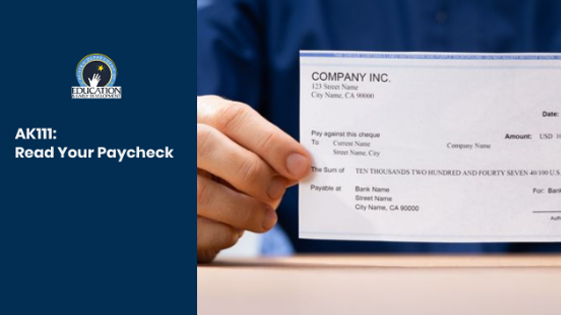
AK111: Read Your Paycheck
Learning Outcomes:
- Learn key terms related to paychecks and paystubs.
- Identify the different parts of a paycheck.
- Identify the different components of a paycheck stub.
- Understand the importance of checking one’s paystub.
- Practice the basic math used to determine gross pay, net pay and deductions.
Description:
It is exciting to earn a paycheck when you start a new job! But it is important to know how to read and understand all the parts of your paycheck and paycheck stub to make sure you are paid correctly for your hard work.
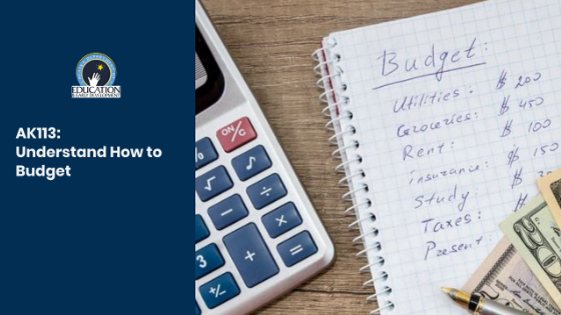
AK 113: Understand How to Budget
Learning Outcomes:
- Learn key terms related to budgeting.
- Understand why tracking your expenses helps in the creation of a budget.
- Explain the difference between a fixed and flexible expense.
- Practice creating a budget using a case study.
- Articulate the three benefits of creating a budget.
Description:
One exciting part of starting a new job is the paycheck that comes with it. A steady income can open up a world of opportunity and new experiences! In this play, you will learn the benefits of creating and following a basic budget.
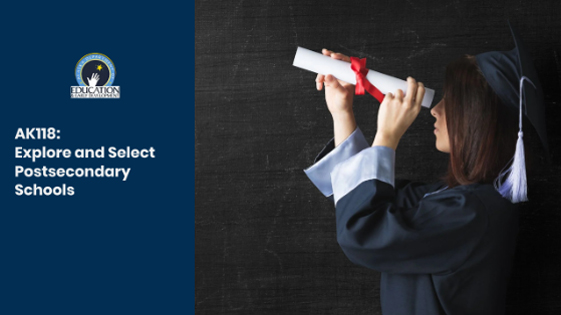
118: Explore and Select Post-Secondary Schools
Learning Outcomes:
- Learn key terms related to postsecondary education.
- Become familiar with different types of postsecondary education including: 4-year university/college, community colleges, and vocational training and technical colleges.
- Explore the need for college in terms of future career goals and education requirements for jobs.
- Reflect on potential barriers to attending postsecondary education programs.
- Reflect on potential benefits to seeking additional education.
Description:
Understanding college and post-secondary opportunities can help you explore which option(s) may be appropriate for your future. Familiarizing yourself with post-secondary schools and vocational training requirements can help prepare you for the next steps in your postsecondary education journey.
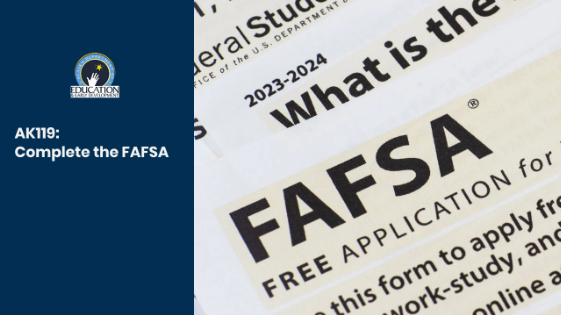
AK 119: Complete the FAFSA
Learning Outcomes:
- Learn key terms related to FAFSA.
- Understand the purpose of submitting a FAFSA application annually to reach career goals.
- Become familiar with the key components of the application such as: deadlines, where and how to fill out the application, parent/guardian and student information required, and more.
Description:
In this play, you will learn about the Free Application for Federal Student Aid (FAFSA) and how to complete it. Many jobs and careers require some degree or certificate, which means going to college or a post-secondary program with some coursework. Filling out the FAFSA will determine if programs you are interested in attending can offer any financial aid.
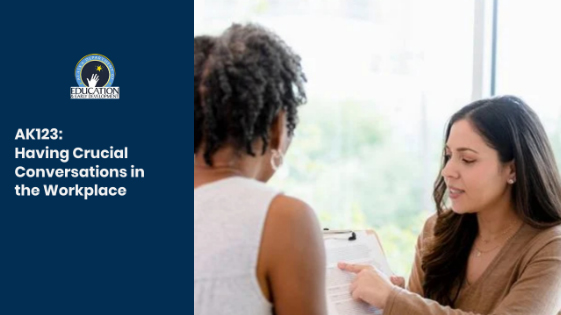
AK123: Having Crucial Conversations in the Workplace
Learning Outcomes:
- Learn key terms related to crucial conversations.
- Become familiar with different crucial conversations that take place in the workplace such as: a performance review, getting a warning at work, accepting constructive feedback, etc.
- Practice the steps to accepting feedback and how to compromise with your supervisor.
- Practice responding to your manager after you receive a formal workplace warning or write-up.
- Practice disclosing a disability.
Description:
No matter where you work, there will be times when you must have hard conversations with your boss or supervisor. These important conversations can help you keep your job and even thrive at work. Because these conversations happen in every job, it is important to practice the skills to make these conversations go well.

Virtual Learning
Consortium
Our Purpose
Our purpose is to make virtual education and professional development resources available to students and teachers in Alaska.
